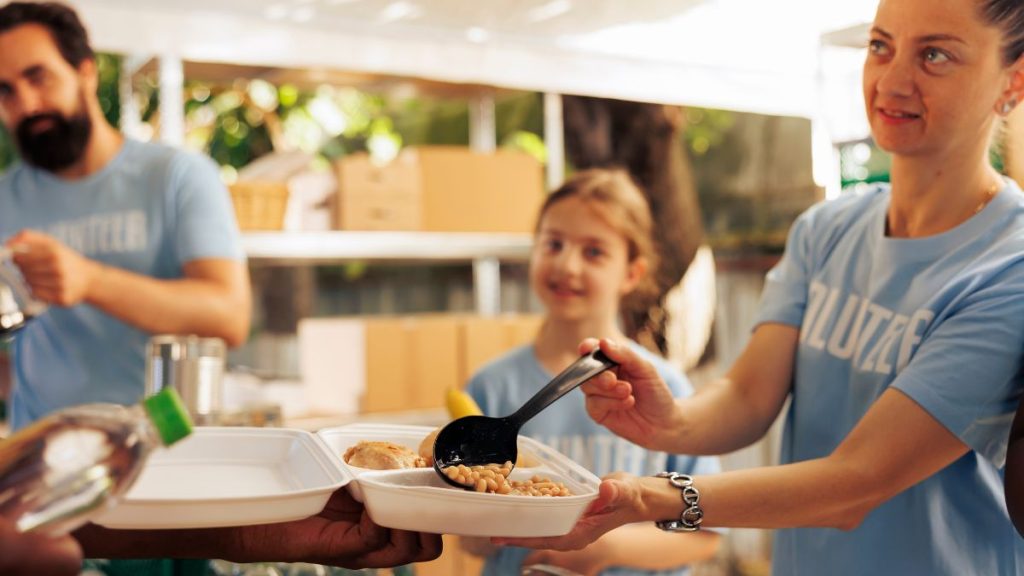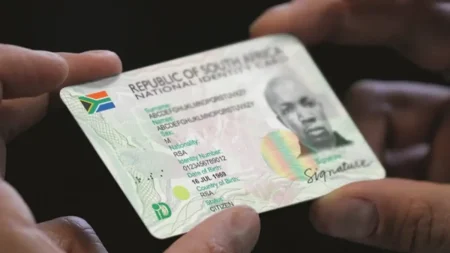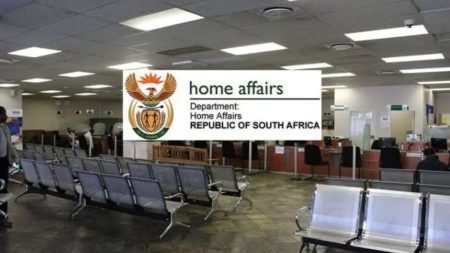South Africa is facing one of its toughest economic periods in years. Food insecurity is not a distant problem, it’s something millions of families deal with every week. With unemployment still high and the cost of basics like bread, maize meal, and cooking oil rising sharply in 2025, many households have reached breaking point. For parents, this often means deciding between school transport or food. For students, it can mean going to bed hungry. For the elderly, it can mean surviving on tea and bread for days.
Between 12 and 17 October 2025, a number of trusted food banks, NGOs, and government partners will be continuing their essential work across the country. These organisations not only provide food parcels but also run help desks, mental health hotlines, and legal assistance for people navigating poverty-related challenges.
National Food Banks & Community Kitchens
National food banks are the backbone of food relief in South Africa. They collect surplus food from farmers, retailers, and manufacturers, and redistribute it through community partners. Many operate year-round but also run targeted programmes during October to meet seasonal demand.
1. FoodForward SA
FoodForward SA is the largest food bank in sub-Saharan Africa, feeding over 950,000 people daily through 2,500+ registered beneficiary organisations (BOs). In 2024, it delivered more than 83 million meals, and demand has surged again in 2025 due to global aid cuts.
What they provide: Nutritious food parcels containing maize meal, rice, beans, canned goods, fresh produce, and milk. Special packs for malnourished children and pregnant women.
Where they operate: Warehouses in Cape Town, Johannesburg, Durban, Polokwane, and Gqeberha, with rural trucks delivering to 29 communities.
Who qualifies: Vulnerable households, especially families with children under five, unemployed parents, and the elderly. Access is usually through a registered BO such as a church, school, or local NGO.
Contact details:
Hotline: 011 230 0000
Email: info@foodforwardsa.org
Website: foodforwardsa.org
Tip for this week: Call early in the week to ask which BO in your area is doing collections. Many distribute between Tuesday and Thursday mornings.
2. SA Harvest
SA Harvest has rescued over 60 million meals since its launch and is known for its dignity-preserving model, ensuring people don’t feel stigmatised when receiving food. Instead of large distribution centres, they focus on direct community drops.
What they provide: Fresh fruit and vegetables, bread, dairy, and cooked meals distributed to schools, shelters, and community kitchens.
Where they operate: Nationwide, with strong presence in Western Cape, Gauteng, and KwaZulu-Natal. Trucks operate weekly routes to townships and peri-urban areas.
Who qualifies: No strict eligibility checks, parcels are handed out via community partners, schools, and NGOs.
Contact details:
Hotline: 021 003 0048
Email: info@saharvest.org
Website: saharvest.org
Tip for this week: Check their social media for truck routes. October often sees extra drops in Gauteng due to school exams and pressure on students.
3. Feed the Nation Foundation
This organisation grew out of retail partnerships and is praised for its scientifically designed food parcels that provide balanced nutrition for a family of four.
What they provide: Dietitian-approved parcels with protein, starch, and vegetables. A single pack is designed to provide 6,000kJ of energy per day and 50g of protein per person.
Where they operate: Based in Cape Town and Johannesburg, but delivers across Western Cape, Eastern Cape, and Gauteng. Expansion to Limpopo and Mpumalanga is underway.
Who qualifies: Households earning under R7,500 per month, students living away from home, elderly caregivers. Subsidised rates are available for low-income families.
Cost: Parcels are subsidised at R180 each. Donations from corporate sponsors allow thousands to be distributed free of charge weekly.
Contact details:
Hotline: 021 180 0799
Email: info@feedthenation.org.za
Website: feedthenation.org.za
Tip for this week: Apply via the online form for a delivery slot between 13 and 16 October.
4. SASSA – Social Relief of Distress (SRD)
The government’s SRD programme is still one of the most direct routes to food aid in South Africa. Despite long queues and application delays, thousands of households rely on it.
What they provide:
Food parcels (weekly or monthly, depending on office stock).
R350 SRD grant, often used to buy groceries.
Where they operate: All provinces via local SASSA offices and the SRD online portal.
Who qualifies: Families with no income, unemployed individuals, and caregivers. Applicants must have a valid ID and proof of address.
Contact details:
Helpline: 0800 60 10 11
Website: srd.sassa.gov.za
Tip for this week: Apply online to avoid queues, then follow up at your local office. Many offices distribute parcels on Wednesdays and Fridays.
5. Operation Hunger
A veteran in food relief since the 1980s, Operation Hunger focuses on high-risk communities where malnutrition is most severe.
What they provide: Parcels with staples and hygiene products such as soap and sanitary pads. Emergency deliveries available.
Where they operate: Nationwide, with emphasis on Gauteng, Western Cape, and North West.
Who qualifies: Households in crisis, particularly families with children or elderly dependants.
Cost: R180 per parcel, R20 delivery fee.
Contact details:
Hotline: 011 483 0142
Website: operationhunger.org.za
Tip for this week: Place orders before Thursday to ensure weekend delivery.
Assistance Desks & Relief Points
Food banks are vital, but many South Africans also need legal advice, emotional support, and referrals for grants, GBV cases, or unemployment issues. These help desks provide wider assistance.
1. South African Depression and Anxiety Group (SADAG)
Hunger and mental health are closely linked. SADAG operates a 24/7 helpline that not only provides crisis counselling but also refers callers to food partners like FoodForward SA.
Services: Mental health support, food parcel referrals, GBV and child protection resources.
Contact details:
Helpline: 0800 567 567 (available 24/7)
SMS: 31393
Website: sadag.org
Why use this week: If stress or depression is linked to food insecurity, SADAG can connect you with both emotional support and practical aid.
2. Legal Aid South Africa
Many people don’t realise that Legal Aid offices also provide help desk referrals for food support, especially for GBV survivors and families in poverty disputes.
Services: Free legal advice, assistance with grant applications, referrals to NGOs distributing food.
Locations: 400+ offices nationwide.
Contact details:
Helpline: 0800 110 110
Website: legal-aid.co.za
October update: Some offices collected donations of toys and food for GBV survivors earlier in the month; distributions are ongoing.
3. UNICEF South Africa Volunteer Programme
UNICEF’s youth-driven Green Rising initiative is active this October, focusing on food gardens and school support. Volunteers often run help desks in townships where families can sign up for parcels.
Services: Community food gardens, awareness campaigns, referral desks.
Contact details:
Email: unicefvolunteers@unicef.org
Website: unicef.org/southafrica/volunteer
4. Habitat for Humanity South Africa
Although known for housing projects, Habitat for Humanity also ties food security into its October World Habitat Day campaigns.
Services: Community builds, food and water access programmes, volunteer drives.
Contact details:
Hotline: 011 234 7420
Website: habitat.org.za
5. Forgood.co.za
A digital hub linking volunteers with charities. Forgood often lists weekly food drives, particularly in Gauteng and Western Cape.
Services: Online platform to sign up for events.
Website: forgood.co.za
Tip for this week: Search “food parcels October 2025” for listings.
Regional Highlights
1. Gauteng
Johannesburg Food Bank via Believers Care Society (believerscaresociety.org).
Township kitchens in Soweto, Tembisa, and Mamelodi serve hot meals.
2. Western Cape
Ladles of Love (Cape Town CBD): Call 021 424 5678 or visit ladlesoflove.org.za.
SA Harvest’s Cape Town hub.
3. KwaZulu-Natal
Durban community kitchens run by churches in Umlazi, Phoenix, and Inanda.
FoodForward SA outreach trucks in rural KZN.
Tips Before You Go
Bring documents: ID book/card, proof of address, or child’s birth certificate.
Plan transport: Budget for taxis. Some NGOs deliver for elderly or disabled.
Arrive early: Distributions often run out by midday.
Go with someone: Safer to attend in pairs.
Stay informed: Follow NGOs on Facebook or WhatsApp for last-minute updates.
Additional Support Resources
Hotlines:
SADAG: 0800 567 567
SASSA: 0800 60 10 11
Websites:
FoodForward SA: foodforwardsa.org
SA Harvest: saharvest.org
Operation Hunger: operationhunger.org.za
Forgood: forgood.co.za
Food insecurity remains one of South Africa’s greatest challenges, but communities and NGOs continue to step up. If you or someone you know needs help between 12 and 17 October 2025, the organisations in this guide are active, reliable, and verified. Share this resource widely, a neighbour, friend, or classmate may be silently struggling.
If you are a volunteer, student, or NGO, consider contacting these groups to help distribute food or support their October drives. Every small act of kindness helps to ensure that no one goes hungry this week.
Check also: Your Week Ahead: Food Banks and Assistance Desks Open (10 Oct–12 Oct)










